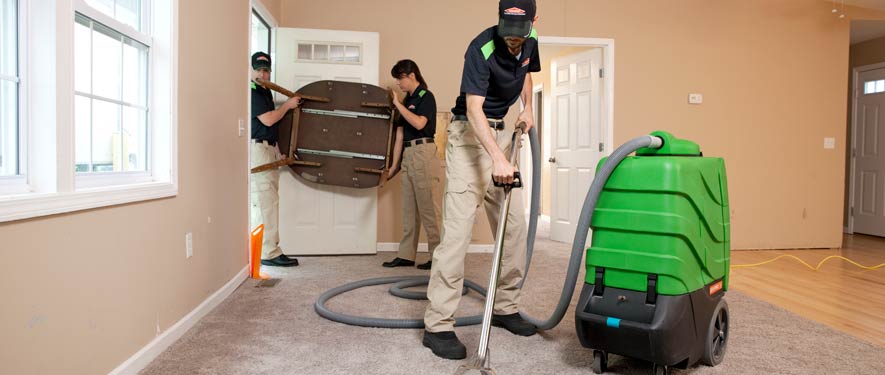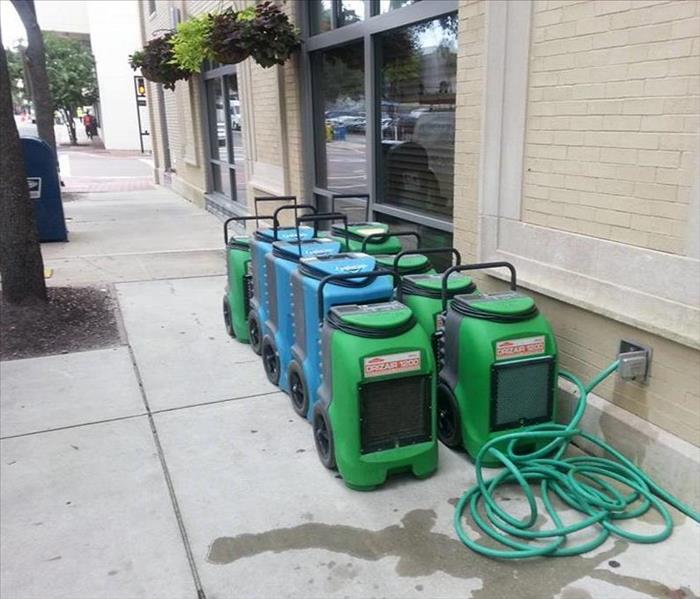
Step 3: Water Removal / Water Extraction
SERVPRO of Mandarin's highly trained technicians begin the water removal process almost immediately upon arrival at your home or business. Depending on the type of water source, and amount of water, our technicians may use powerful submersible pumps in addition to industrial strength, wet/dry vacuums to extract. Even if standing water isn't present, our team may still extract certain types of flooring to make it easier to remove or dry. Removing most of the water helps reduce drying time and helps prevent secondary water damage. By extracting the standing water quickly we can control the humidity, and decrease the chance of further damage to the structure. Mold and bacterial growth may also be present if standing water isn't extracted quickly.
Move-Out / Pack-Out
If your home requires extensive restoration or cleaning, SERVPRO of Mandarin can conduct an organized, efficient move-out to protect your belongings from further damage.
- Move-Out Service
Emergency Water Removal
Our highly trained technicians will begin the water removal process almost immediately. Depending on the amount of water, we may use powerful submersible pumps in addition to industrial strength, wet/dry vacuums. Removing most of the water helps reduce drying time and helps prevent secondary water damage and mold and bacterial growth.
- Remove Excess Water
- Use Submersible Pumps and Industrial Wet/Dry Vacuums
Inspect the Carpet Pad and Carpet
We inspect the carpet and pad and determine if they should be removed to protect the subfloor.
- Inspect Carpet Pad and Remove If Needed
- Inspect Carpet and Remove If Needed
Water Removal Equipment
- Moisture detectors, hygrometers, and other meters measure the extent of moisture saturation.
- Infrared cameras may be used to find “hidden” water behind walls and ceilings.
- Submersible and gas-powered pumps are used for continuous pumping of high-level water.
- Truck-mounted and portable extraction units perform efficient water removal.

 24/7 Emergency Service
24/7 Emergency Service




